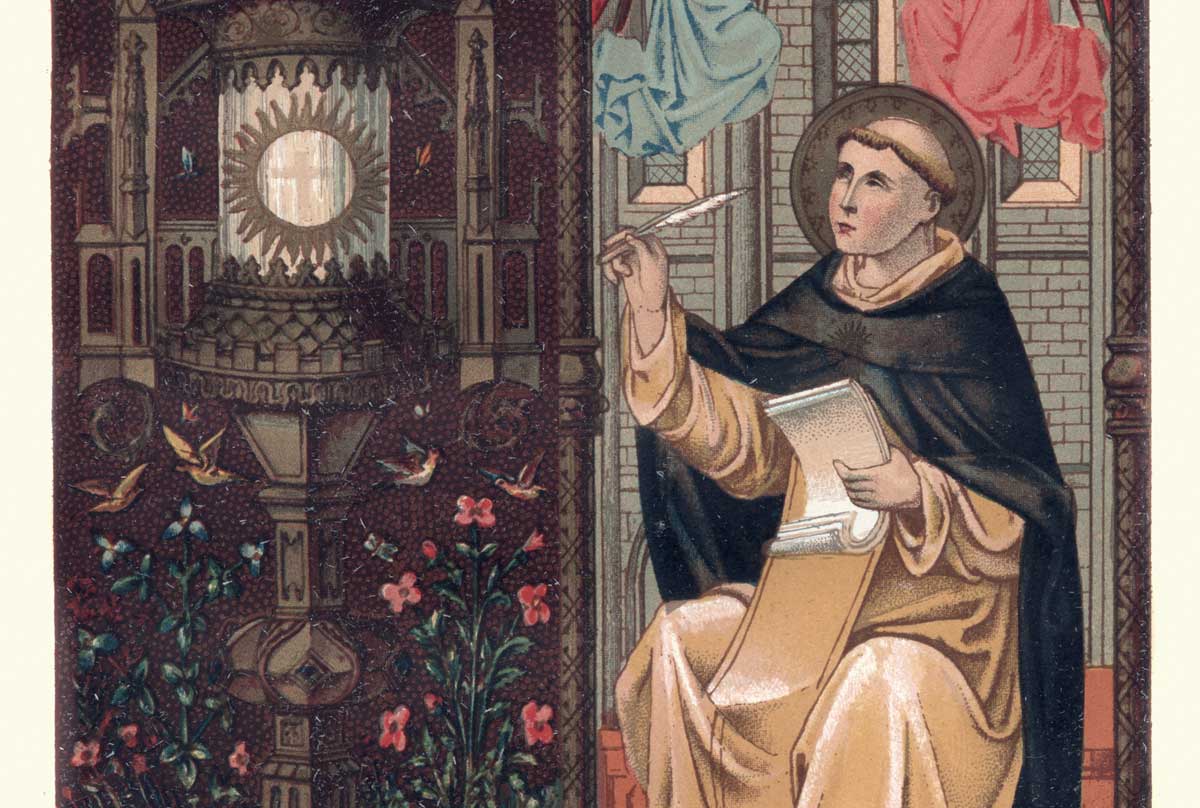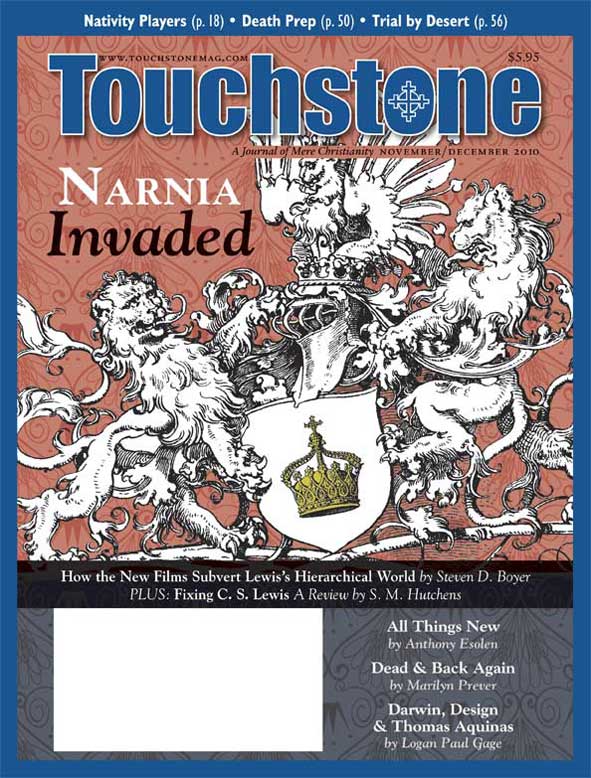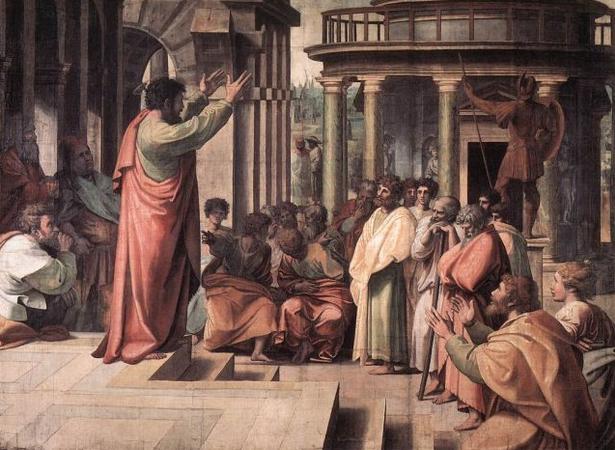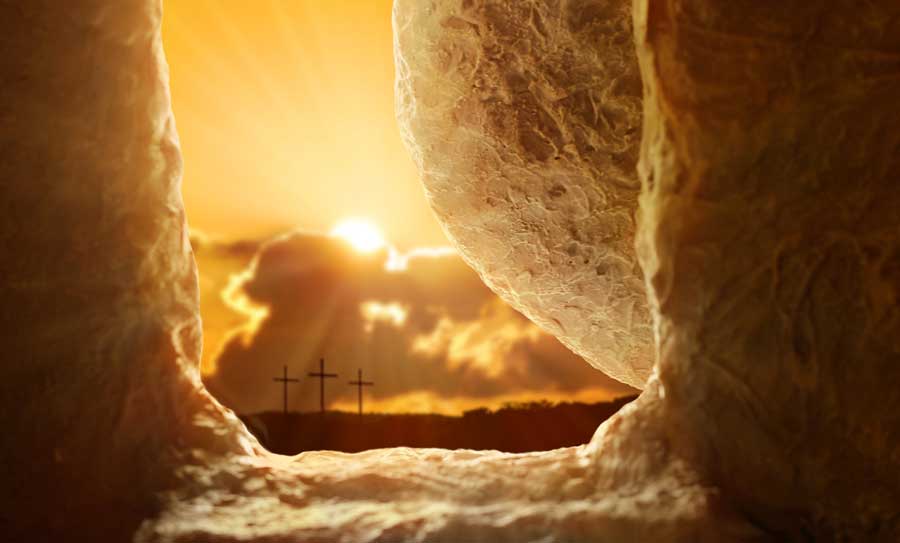Feature
Darwin, Design & Thomas Aquinas
The Mythical Conflict Between Thomism & Intelligent Design
In a little-recounted episode of the 2005 Kitzmiller v. Dover intelligent design trial, the plaintiffs (objecting to a four-paragraph statement read in biology class) summoned a curious expert witness: John F. Haught, former chair of Georgetown University’s theology department. Asked to identify the antecedents of intelligent design, Professor Haught pointed to Thomas Aquinas’s five arguments for the existence of God, “one of which was to argue from the design and complexity and order and pattern in the universe to the existence of an ultimate intelligent designer.”
Intelligent design (ID) was on trial because it conflicts with Darwin’s theory as taught in the classroom: Modern Darwinian evolution claims that the unguided processes of random mutation and natural selection are sufficient to explain the stunning features of living things, while intelligent design claims there is evidence that some things are better explained by an intelligent cause.
Haught slightly mischaracterized Thomas’s argument, which says nothing about complexity per se. But Thomas certainly made a design argument by appealing to features of the natural world, as do contemporary ID theorists. Despite these similarities, however, some Thomists claim that Thomism is compatible with Darwinian evolution and incompatible with intelligent design.
So which is it? Are Thomas’s writings a precursor to intelligent design, as even design-critics like Haught claim; or is Darwin compatible with and ID irreconcilable with Thomas’s philosophical and theological framework? Or is there some third possibility? These are important questions, especially for Catholics, because St. Thomas is the gold standard of Catholic thought—not infallible, but highly trustworthy.
In a typical discussion of Darwinian evolution, Christian philosophy, and intelligent design, one is likely to hear that St. Thomas had no problem with secondary causes operating in nature and that St. Augustine knew that the Bible is “not a science textbook.” Both of these assertions are true, as far as they go. But unfortunately, such platitudes only obscure deeper sources of tension between Darwinism and Thomistic thought. Here I would like to explore three intimately related sources of tension: the problem of essences, the problem of transformism, and the problem of formal causation.
The Essences of Species
First, the problem of essences. G. K. Chesterton once quipped that “evolution . . . does not especially deny the existence of God; what it does deny is the existence of man.” It might appear shocking, but in this one remark the ever-perspicacious Chesterton summarized a serious conflict between classical Christian philosophy and Darwinism.
In Aristotelian and Thomistic thought, each particular organism belongs to a certain universal class of things. Each individual shares a particular nature—or essence—and acts according to its nature. Squirrels act squirrelly and cats catty. We know with certainty that a squirrel is a squirrel because a crucial feature of human reason is its ability to abstract the universal nature from our sense experience of particular organisms.
Think about it: How is it that we are able to recognize different organisms as belonging to the same group? The Aristotelian provides a good answer: It is because species really exist—not as an abstraction in the sky, but they exist nonetheless. We recognize the squirrel’s form, which it shares with other members of its species, even though the particular matter of each squirrel differs. So each organism, each unified whole, consists of a material and immaterial part (form). (“Species” here is a more encompassing concept than in modern biological definitions. For example, wolves and domesticated dogs might share a common essence.)
Logan Paul Gage is a Ph.D. student in philosophy at Baylor University. He and his wife Elizabeth attend St. Joseph's Catholic Church in Waco, Texas. A version of this essay appears in the recently released book God and Evolution (Discovery Institute Press), edited by Jay W. Richards.
subscription options
Order
Print/Online Subscription

Get six issues (one year) of Touchstone PLUS full online access including pdf downloads for only $39.95. That's only $3.34 per month!
Order
Online Only
Subscription

Get a one-year full-access subscription to the Touchstone online archives for only $19.95. That's only $1.66 per month!
bulk subscriptions
Order Touchstone subscriptions in bulk and save $10 per sub! Each subscription includes 6 issues of Touchstone plus full online access to touchstonemag.com—including archives, videos, and pdf downloads of recent issues for only $29.95 each! Great for churches or study groups.
Transactions will be processed on a secure server.
more on evolution from the online archives

23.6—November/December 2010
Darwin, Design & Thomas Aquinas
The Mythical Conflict Between Thomism & Intelligent Design by Logan Paul Gage
more from the online archives

11.5—September/October 1998
Speaking the Truths Only the Imagination May Grasp
An Essay on Myth & 'Real Life' by Stratford Caldecott
calling all readers
Please Donate
"There are magazines worth reading but few worth saving . . . Touchstone is just such a magazine."
—Alice von Hildebrand
"Here we do not concede one square millimeter of territory to falsehood, folly, contemporary sentimentality, or fashion. We speak the truth, and let God be our judge. . . . Touchstone is the one committedly Christian conservative journal."
—Anthony Esolen, Touchstone senior editor











